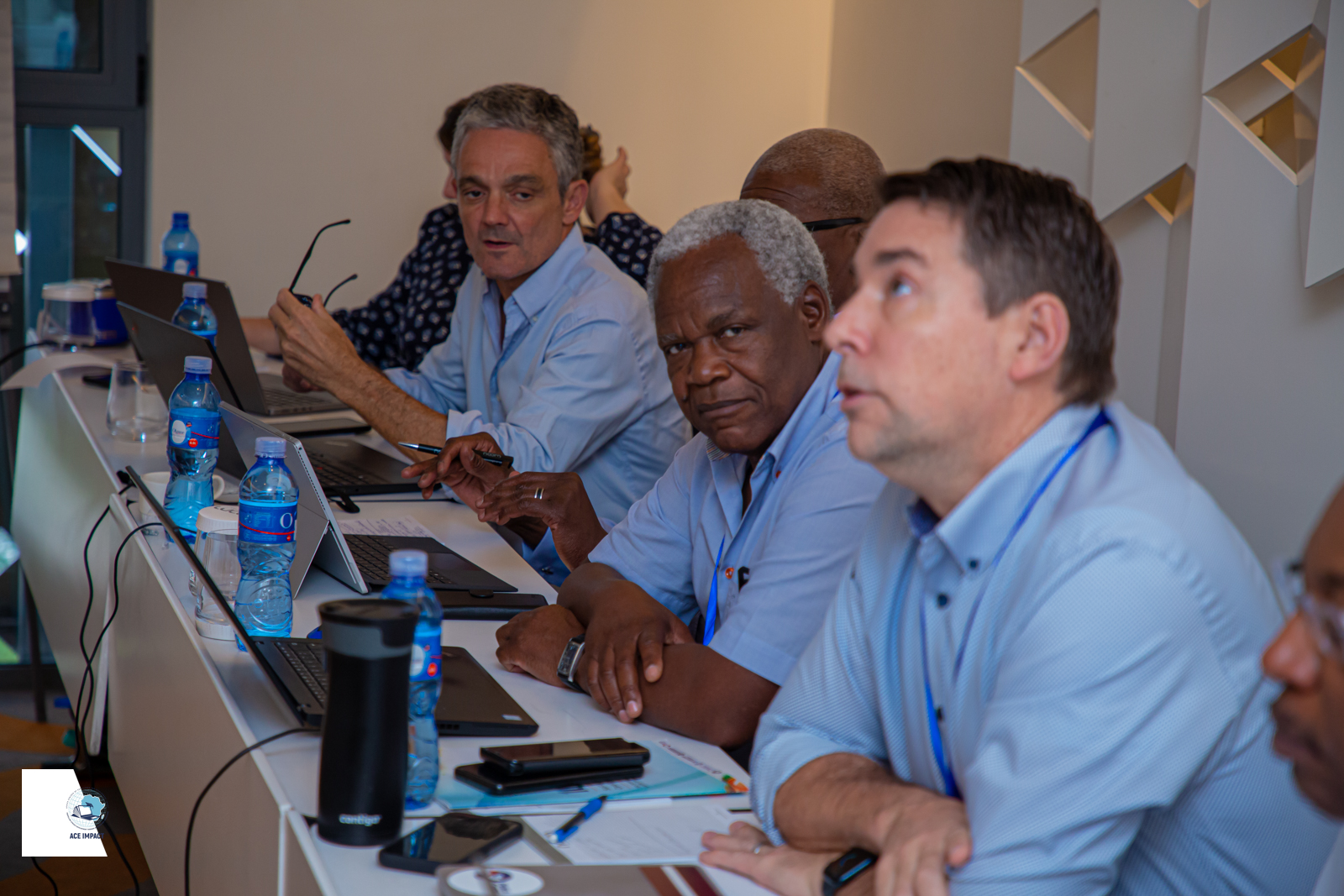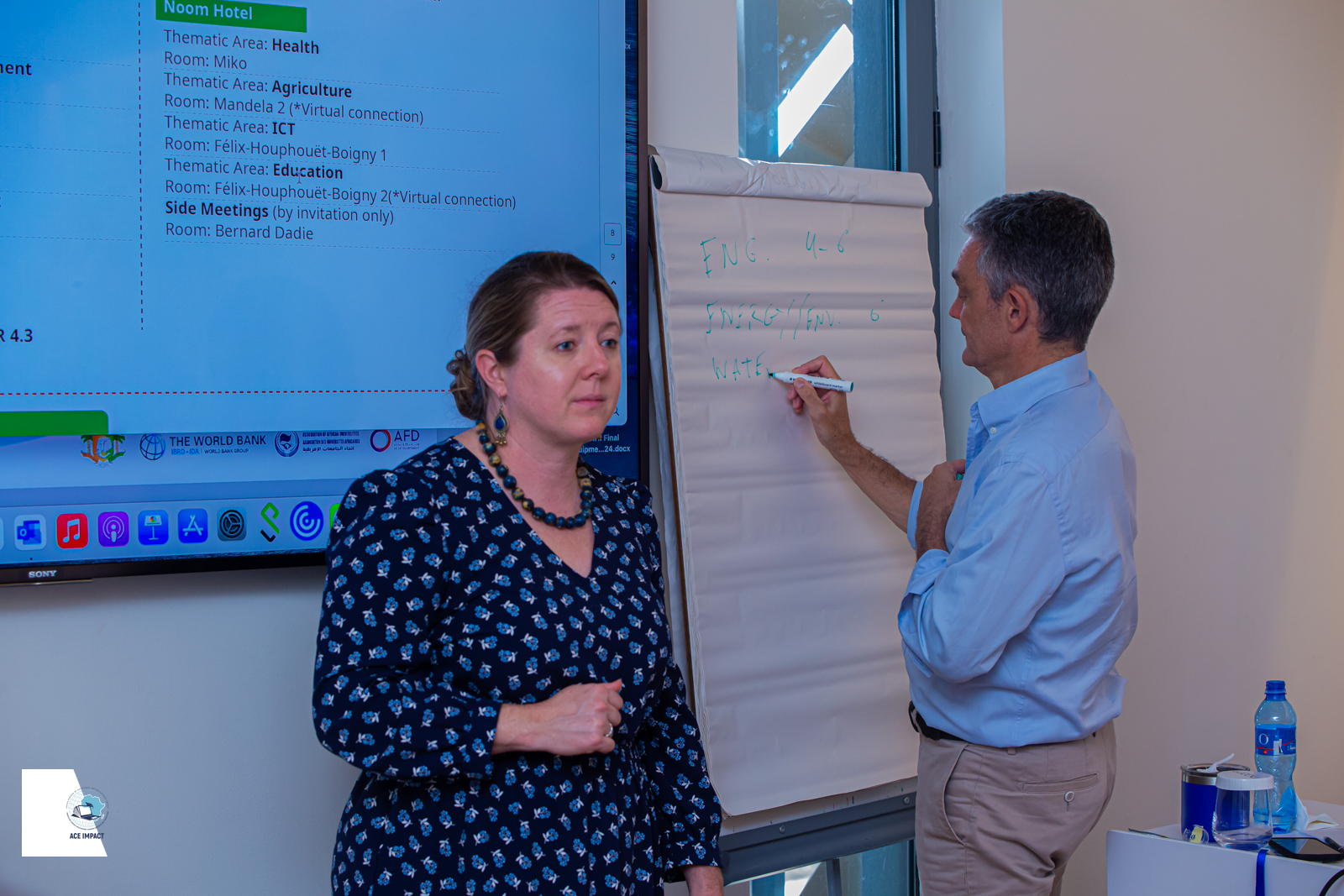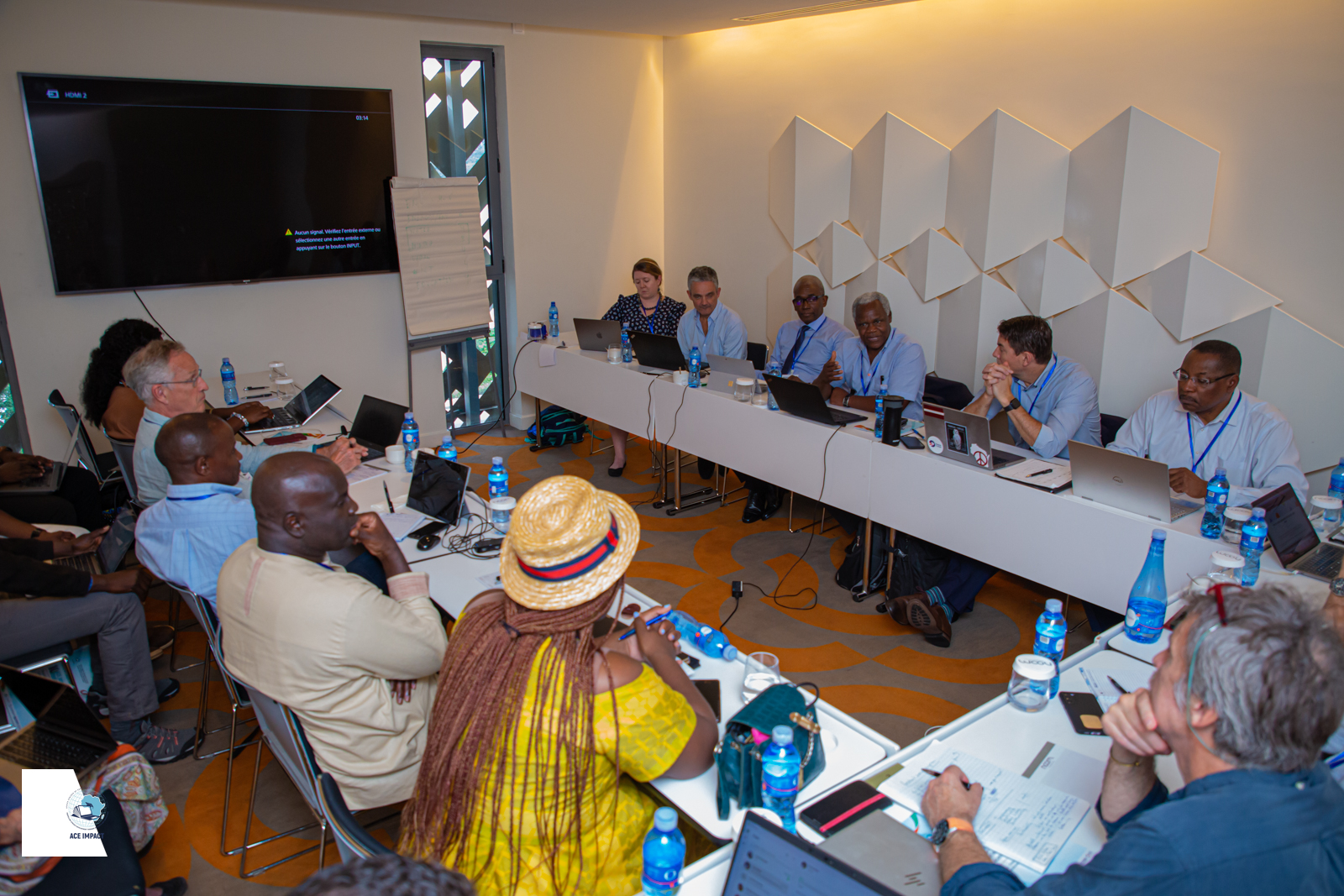The ongoing ACE Impact 10th Regional Workshop in Abidjan, Cote d’Ivoire, featured an Experts Group meeting where thematic experts supporting the Centres of Excellence engaged in critical discussions and exchanges of experiences, to enrich their strategies and reinforce their support to the centres, as the project approaches its culmination in 2025.
The thematic expertise of the group encompasses the areas of Engineering, Energy/Environment, Water, Mining, Urban/Transport, Education, Health, Agriculture, ICT and Education, in alignment with the key focus areas of the ACE Impact Project.
The core topics guiding these discussions included sustainability, centre networks, and a dedicated focus on reviewing the newly established Moroccan partnerships since the last ACE Impact workshop in Morocco in May 2023.

The significant timeframes for the upcoming project period, which extends from present until December 2025, marking the deadline for the completion of all activities, were emphasized. Each expert was tasked with ensuring that their centres strictly adhere to these pivotal schedules and collaborate closely to accomplish the core targets. A detailed schedule was provided for the completion of all civil works, procurement, and other vital aspects of the project.
The essential sustainability aspects, which encompass economic, organizational, and environmental factors, were carefully discussed, and strategies to promote sustainability as a priority within the center-level activities were underscored. Methods for generating funding to support the centers related costs, such as research and innovation costs, education expenses, and operating costs were suggested. Emphasis was placed on promoting university cost-sharing and involving industry as part of the centre’s sustainability strategy.

Key revenue streams outlined to be pursued by the centres as part of their sustainability measures included grants, commercialised services, philanthropic contributions and partnerships with development and private sectors aligned with national and regional priorities. It was reiterated that host institutions should serve as the primary source of funding for the centres, as they are the overall institution facilitating the activities of the centres. The importance of visioning in terms of resourcing was underscored, helping to guide well budgeted plans and activities, in line with the goals and vision of the centres.
Concerning the key success factors contributing to the ongoing excellence and sustainability of the centres, it was emphasized that strong leadership, specialized programming or institutions, innovative curriculum and pedagogy, as well as a commitment to quality and gender inclusivity, are all indispensable. International partnerships, groundbreaking research, and innovations were recognized as core features of the typical centers of excellence brand, which should be vigorously pursued beyond the current project’s funding phase.
The Value of Networking as a Sustainability Measure
The expert meeting also featured an engagement session with the French National Research Institute for Sustainable Development (IRD), focusing on the ACE Partner Project. This initiative aims to promote the influence and collaboration of thematic research networks between African Centres of Excellence, and key actors in quality education and research, mobilised around national and regional developmental issues. It is an institutional collaboration between the World Bank, the Association of African Universities, the French Development Agency (AFD), the IRD, and Inria.
Currently, four networks are being supported under this project: Digital Science and Technology (DSTN), West African Network for Infectious Diseases ACE (WANIDA), Responsible Mining and Sustainable Development (AMR2D), and Sustainable Water Management (RES’ EAU). These networks have played a pivotal role in enhancing the research capacities of centers, promoting entrepreneurship and innovation, and focusing on the sustainability of the centers.
The meeting emphasized the significant value of the connections and platforms created for the centers to engage with each other through these thematic networks. Such platforms have yielded positive outcomes and fostered partnerships among the centers, leading to collaborative research, student exchanges, and various impressive initiatives.
As the Network’s funding under the IRD Project approaches its conclusion in 2024, the team discussed key lessons learned and the measures that contributed to the successes recorded by the networks. The experts stressed the need for the networks to diversify their engagement and promote cross collaborations between the networks to further strengthen the quality impact being made. They also highlighted the importance for all partners, including themselves, gradually withdrawing from the role of facilitating the networks’ activities to promote self-sufficiency. The proposal to engage in scenario planning to establish measures for expanding the networks and ensuring their effective operation beyond the funding period was stressed as a critical step.
In conclusion, the experts stressed the importance of ensuring that the networks’ activities complement those of the Centers of Excellence. They also encouraged the team to launch a campaign to effectively communicate the story, value proposition, and remarkable successes achieved by the Networks. Team members were also briefed by the IRD on a survey being conducted to elicit information for this campaign. The team received updates from the World Bank regarding the key goals to be achieved as the project concludes in 2025.
